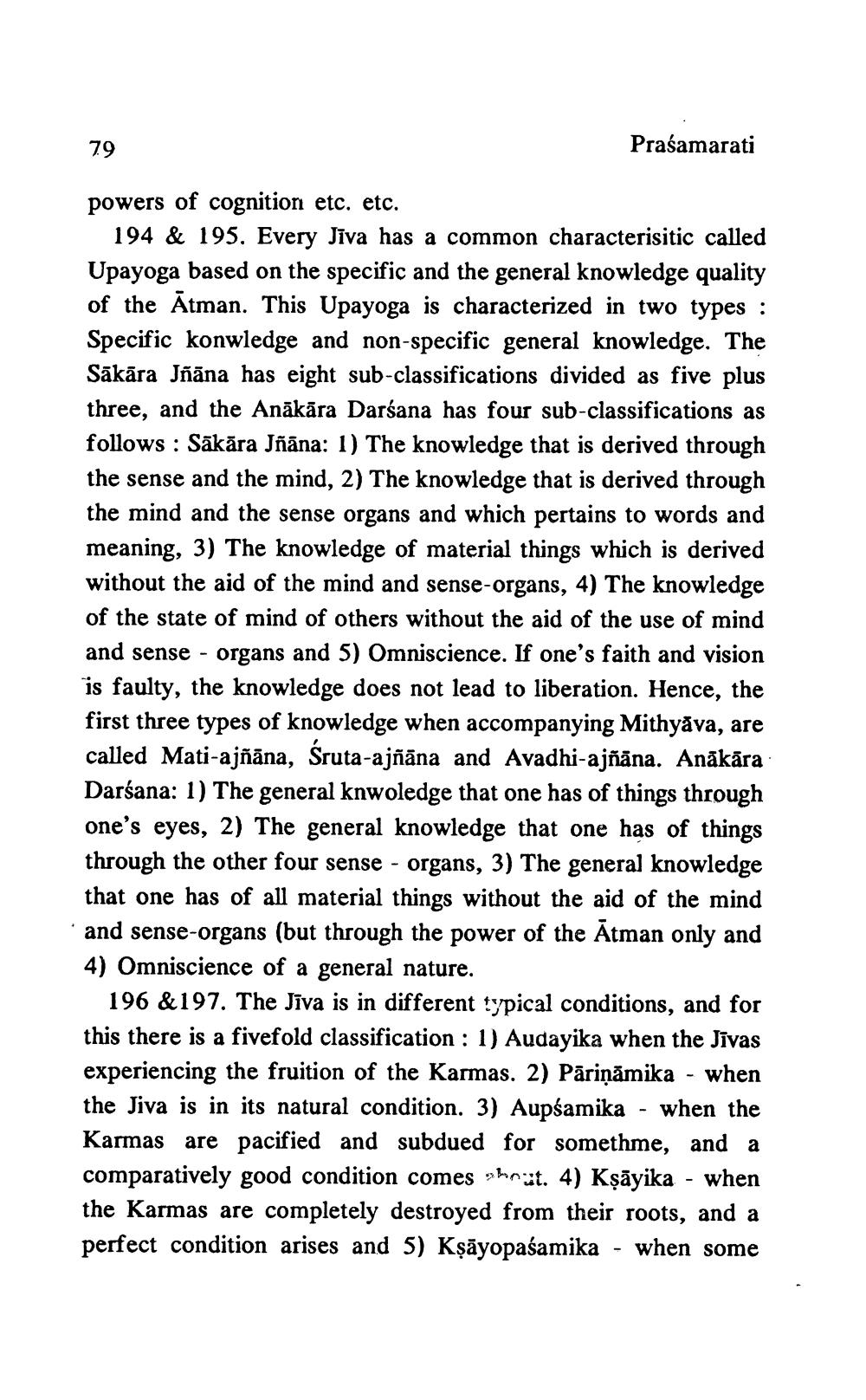________________
79
Praśamarati
powers of cognition etc. etc.
194 & 195. Every Jīva has a common characterisitic called Upayoga based on the specific and the general knowledge quality of the Ātman. This Upayoga is characterized in two types : Specific konwledge and non-specific general knowledge. The Sākāra Jñāna has eight sub-classifications divided as five plus three, and the Anākāra Darśana has four sub-classifications as follows : Sākāra Jñāna: 1) The knowledge that is derived through the sense and the mind, 2) The knowledge that is derived through the mind and the sense organs and which pertains to words and meaning, 3) The knowledge of material things which is derived without the aid of the mind and sense-organs, 4) The knowledge of the state of mind of others without the aid of the use of mind and sense - organs and 5) Omniscience. If one's faith and vision is faulty, the knowledge does not lead to liberation. Hence, the first three types of knowledge when accompanying Mithyāva, are called Mati-ajñāna, Sruta-ajñāna and Avadhi-ajñāna. Anākāra Darśana: 1) The general knwoledge that one has of things through one's eyes, 2) The general knowledge that one has of things through the other four sense - organs, 3) The general knowledge that one has of all material things without the aid of the mind and sense-organs (but through the power of the Ātman only and 4) Omniscience of a general nature.
196 &197. The Jīva is in different typical conditions, and for this there is a fivefold classification : 1) Audayika when the Jīvas experiencing the fruition of the Karmas. 2) Pāriņāmika - when the Jiva is in its natural condition. 3) Aupsamika - when the Karmas are pacified and subdued for somethme, and a comparatively good condition comes shout. 4) Kṣāyika - when the Karmas are completely destroyed from their roots, and a perfect condition arises and 5) Kṣāyopaśamika - when some




